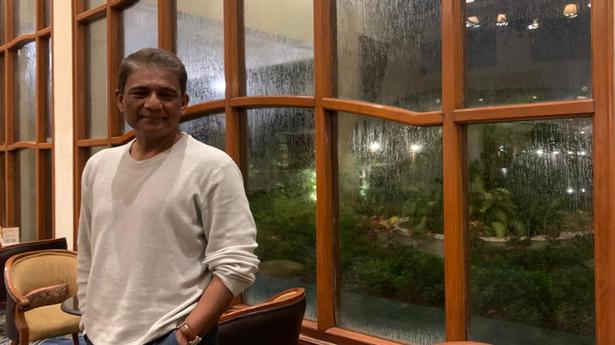
Adil Hussain seeks answers: On ‘The Storyteller’ and ‘Max, Min and Meowzaki’
The Hindu
In his latest films, Adil Hussain questions the idea of identity and originality, and indulges in a mystical conversation in his upcoming play based on the ‘Bhagavad Gita’
A rare actor who dabbles in both mainstream and independent cinema with equal ease, Adil Hussain says the Hindi mainstream cinema needs to fix its process of content creation. “Films are not just about eventfulness, but also about the psychological study of characters.”
Characters with depth are something he enjoys portraying, and could go to any length in search of them. Recently, he played one such layered character in Wanphrang Diengdoh’s Lorni -The Flaneur on SonyLIV; a private detective in search of a stolen culture. Adil is very much like a flaneur who loves to observe society and appreciates all its colours. “We have competent novel and short story writers, and they could be engaged in developing ideas and characters with screenwriters. It is something filmmakers from the south have been doing successfully. Perhaps that’s why more and more of their films are being remade in Hindi,” he observes.
Excited that two of his films have made it to the upcoming Busan International Film Festival, Adil was in Delhi recently to participate in the India Habitat Centre Theatre Festival, where the spotlight was on his contribution to theatre.
Excerpts from a conversation:
There is a particular scene in the film where a shaman says that the most valuable things which can be or will be stolen are our words and stories. When I read the script, I felt this is a very important question to address. Our subconscious conditioning, how we behave, and how we look at others, are mostly dependent on stories that we are brought up on.
It leads to another important question — as to who are the original inhabitants of a place — that the film raises in a non-political, anthropological way. I could identify with it. In Assam, where I come from, there is a debate whether the Ahoms — who are said to have come from Thailand — are the original inhabitants, or is it the Rabhas, the Miris, and the Karbis? The former has become royalty because they conquered the land; the others are called tribals. Over the years, some people have come in from West Bengal and East Bengal (Bangladesh), and now they are called outsiders. I don’t know who is right or wrong, but it is an interesting debate that I usually don’t find in Indian films.
Like the protagonist, I also have a mixed identity and could understand his concerns. My maternal grandfather was a Sufi from Iraq who came and settled in India in 1875, and my maternal grandmother was born to an Englishman — who ran streamers in the Brahmaputra — and an Assamese girl.





















 Run 3 Space | Play Space Running Game
Run 3 Space | Play Space Running Game Traffic Jam 3D | Online Racing Game
Traffic Jam 3D | Online Racing Game Duck Hunt | Play Old Classic Game
Duck Hunt | Play Old Classic Game











